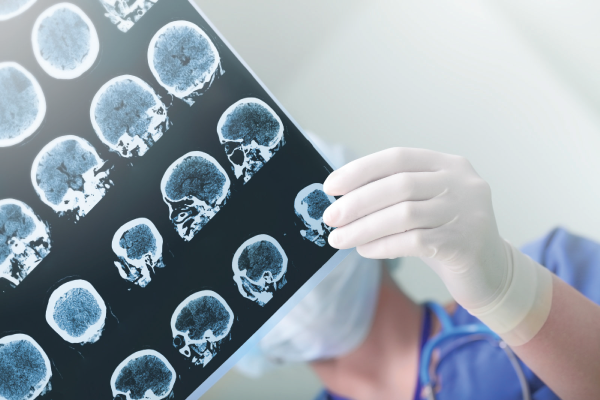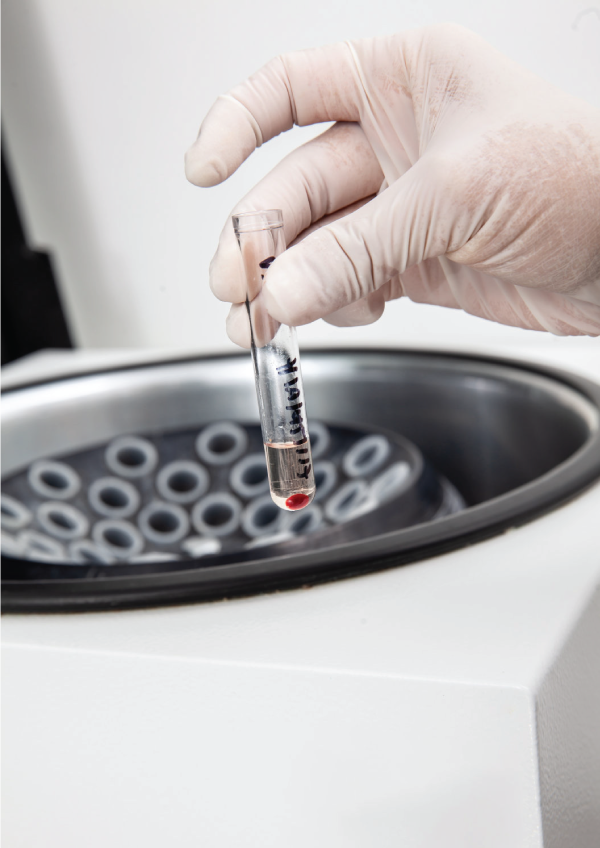IDH1 R132H Mutation Detection Test
Identifies IDH1 R132H mutation with limited tissue/blood samples
Research Use Product
Research Service
Early Detection/Screening
Diagnosis
Therapy Selection
Therapy Monitoring
Introducing QClamp™ IDH1 Test
The IDH1 mutation is often found in brain tumors called gliomas and a type of blood cancer called acute myeloid leukemia (AML). The QClamp® IDH1 Mutation Detection Kit offers a solution for detecting mutations in plasma samples, particularly when the amount of cell-free DNA (cfDNA) is low. This is especially beneficial for patients with low-grade glioma who are unsuitable for biopsy.
The assay is a qualitative real-time PCR assay that leverages DiaCarta’s proprietary technology for detecting the IDH1 R132H Mutation with high sensitivity and specificity. The XNA specifically targets the R132 wildtype sequence, blocking its amplification while allowing the mutant sequence to be selectively amplified. With a low detection limit, the assay can be used for tissue and blood and potentially validated for cfDNA samples for low-frequency mutation detection, which allele-specific qPCR may find limits.
Sample type: tissue or blood samples
Sample amount: 10ng DNA input
Validated machines: Thermo Fisher Scientific (ABI) QuantStudio® 5 and Bio-Rad CFX384™
High sensitivity: The assay can detect as low as 0.33% variant allele frequency (VAF) of IDH1 R132H mutation
The IDH1 mutation is often found in brain tumors called gliomas and a type of blood cancer called acute myeloid leukemia (AML). When IDH1 is mutated, it causes a mix-up in the cell’s normal processes, leading to the buildup of something called 2-hydroxyglutarate (2-HG). This 2-HG disrupts things and can make cells turn cancerous. Scientists are studying these IDH1 mutations to understand how they work, especially in cancers like gliomas and AML, so they can find better ways to treat them.
IDH1 and Glinomas
The IDH1 R132H mutation is the primary mutation in IDH1 among glioma patients. It occurs in approximately 70% of gliomas, including astrocytomas and oligodendroglial tumors.
The presence of the IDH1 mutations in patients with glioma is associated with favorable patient survival. Thus, the IDH1 mutations are one of the most important diagnostic and prognostic factors for adult diffuse gliomas. For this purpose, IDH1 mutation testing is required for all grades of gliomas.

IDH1 and Accute Myeloid Leukemia (AML)
The IDH1 gene mutations were also found in around 6 – 10% of people with acute myeloid leukemia (AML). FDA has approved two IDH1 inhibitors to treat patients with IDH1 mutations. IDH1 mutation testing can also be validated for companion diagnostics to identify patients who would benefit from using these drugs.
- Ivosidenib is available for the treatment of patients with relapsed or refractory AML harboring IDH1 mutations as well as for the treatment of newly diagnosed AML who are ≥ 75 years of age or are ineligible for intensive chemotherapy with a susceptible IDH1 mutation. The Ivosidenib was also approved for advanced or metastatic cholangiocarcinoma.
- Olutasidenib is another IDH1 inhibitor for relapsed or refractory AML with a susceptible IDH1 mutation.

